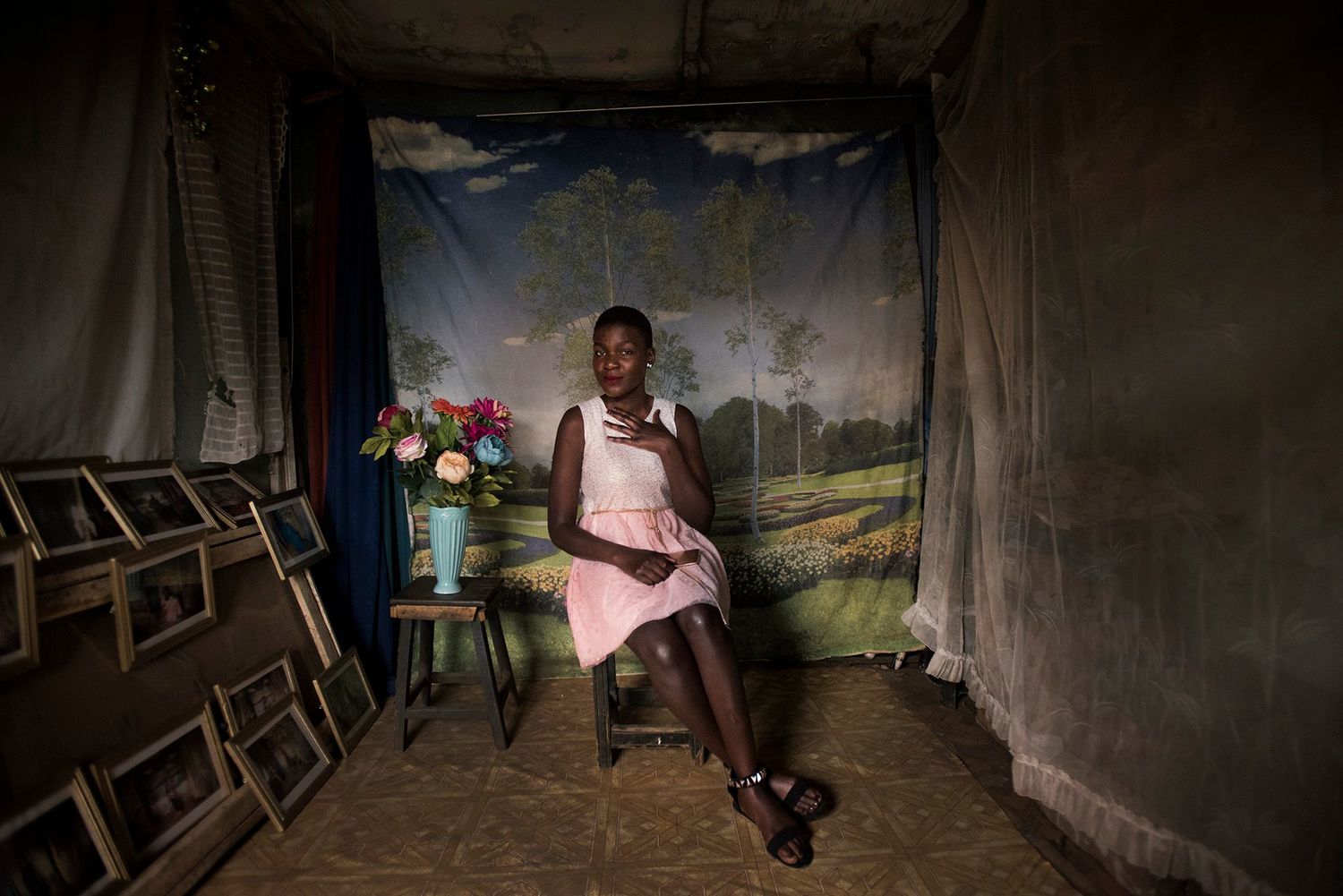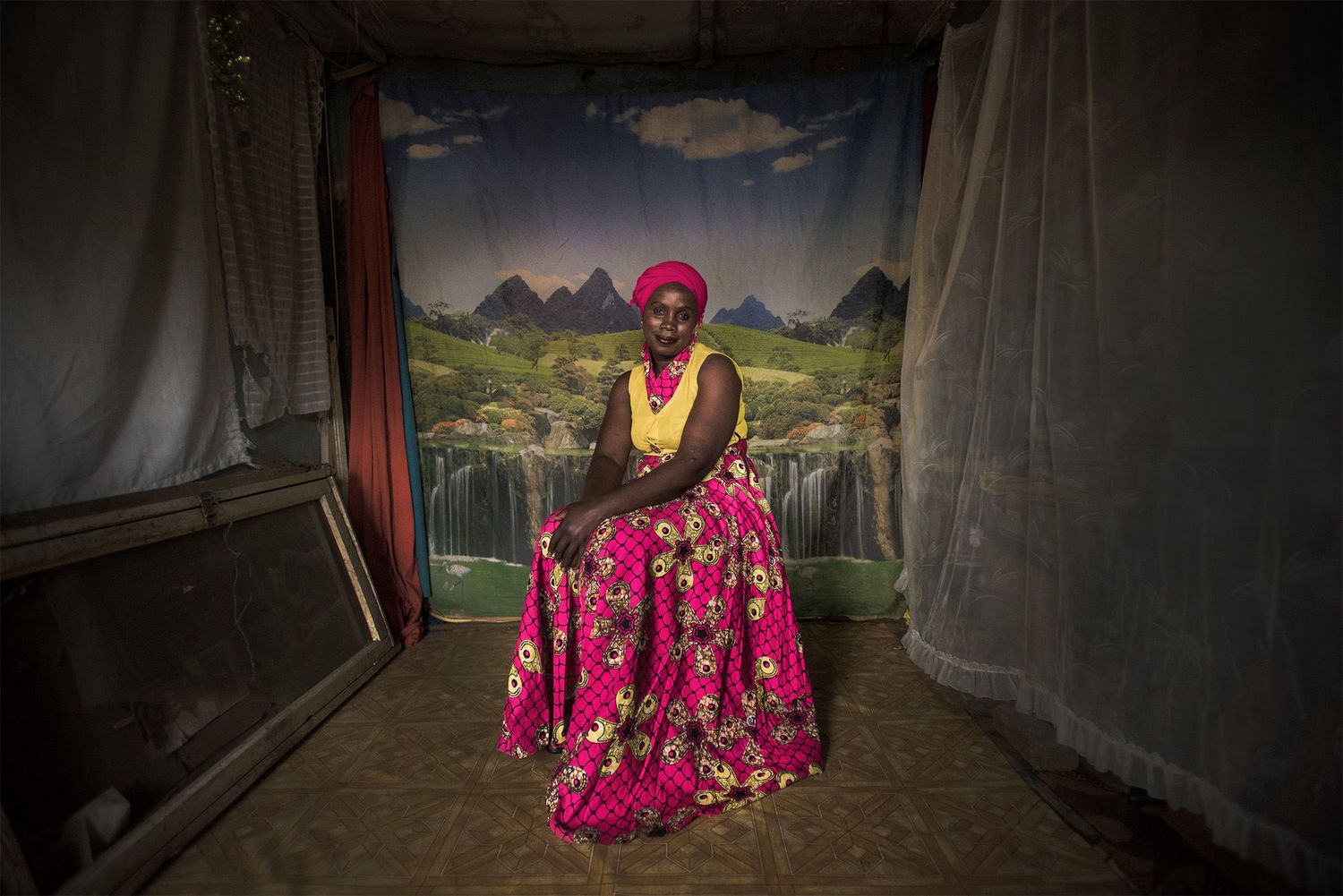Before the invention of digital photography and camera phones—and even before the invention of early snapshot cameras—when people wanted their photo taken, they went to a studio specialized in portraiture. Photographers trained in the science of exposing, developing and fixing an image owned full-fledged businesses, where they constructed settings and scenarios with props and concentrated lighting. Having your photograph taken at a studio also meant the development and selection of your surrounding materials, so that each memorable feature was preserved along with you in the final print. Subjects arrived in their very best clothing (or dressed up for a particular theme), and selected backdrops that best represented their message.

But as the photographic medium developed into something more widely accessible, the need for photographic studios quickly vanished. Our closest everyday equivalent to the phenomenon in our current context is the photo shops we seek out to have a series of wallet-size portraits taken for a passport. Kenya-based photographer Mia Collis became fascinated by this history of studio portraiture when she encountered the waning Weekend Studio in Kibera. “I fatefully walked into Kibera’s oldest photo studio just four days before it closed forever,” she explains. “The photographer, David, who leased the studio for 37 years, said that due to phone cameras, few people wanted studio portraits, and clients nowadays only requested the space for passport photos.”
David was planning to close the studio and retire so that he could return home to his family, and Collis found herself in a panic to preserve the legacy of the space. “I couldn’t persuade him to stay, and I became troubled by the studio’s imminent closure. One week later, I decided to take over the hire of the studio myself. This would keep it open, and it was the perfect venue to shoot a series.”

So Collis began coaxing people into the studio to photograph them, and Sunday Best at Weekend Studio was born. Her images depict local people on their way to church each Sunday, wearing their best outfits for the religious occasion. As the project evolved, the photographer began integrating the personal stories of each sitter, who open up about the importance of their clothing and personal style, posing for the camera in order to express their individuality. For example, while some might reserve a flouncy outfit strictly for Sundays, R&B musician Eric quips, “I dress this smart every day because I am a musician and I want people to know that.” And while traditional portraiture had subjects sit down stoically for long exposures, Collis encourages her subjects to be experimental with their poses.


Since Collis took over the studio some months ago, she continues photographing each Sunday, and word has spread about the project. “In Kenya, going to church on Sunday is a big thing,” she explains. But what the photographer hopes for the most is that David’s legacy is preserved. This can be done as long as the studio he worked so hard to build evolves into a continuous creative venture for locals, rather than closing entirely. “I’ve now photographed for many Sundays in a row at Weekend Studio,” Collis reflects. “And the portrait I took of David on his last ever Sunday before he left hangs on its walls.”
Editor’s Note: Mia Collis was selected as one of LensCulture Emerging Talents for 2018. Be sure to check out the remarkable work of all the other Emerging Talents, as well — we know you’ll discover lots of inspiration!









